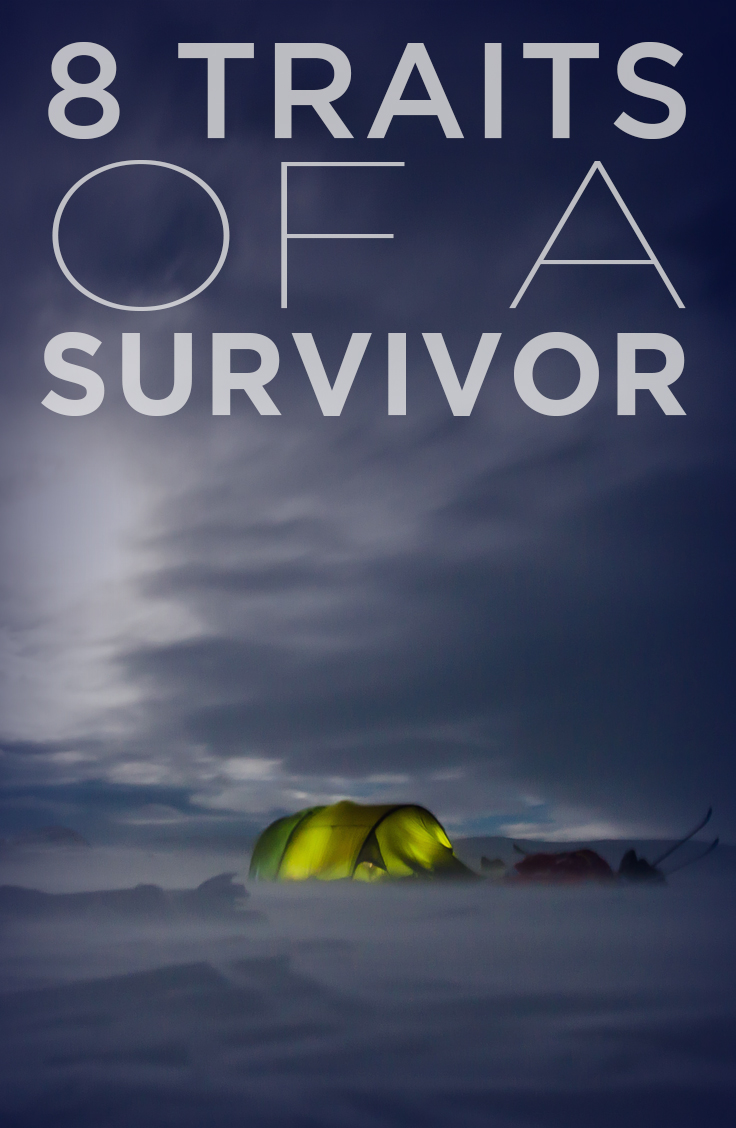 I see all aspects of life through the lens of survival. Whether in our office, at home, in the outdoors, or even in social situations, we are survivors in a world where few are looking out for our best. Having the traits of a survivor can not only get us through some tough situations, but it can allow us to embrace the realities of life with confidence, contentment, and clarity.
I see all aspects of life through the lens of survival. Whether in our office, at home, in the outdoors, or even in social situations, we are survivors in a world where few are looking out for our best. Having the traits of a survivor can not only get us through some tough situations, but it can allow us to embrace the realities of life with confidence, contentment, and clarity.
1. A Survivor knows their limits
“If children are going to climb trees, bring them to a park with short tress.” This was one of my father’s favorite sayings. There will always be moments in life when your body, mind, and spirit will be tested. So train for them.
We are not invincible. And accepting this fact is the first step in finding your limits. This is more of a caution to the young. Injuries that we acquire at a young age tend to stick around, and even worsen with age.
Test yourself. Find safe places to test the waters of your abilities and weaknesses. In this arena, you will be able to build mental, physical, and spiritual strength. If you feel that something is beyond your current capabilities, come back to it when you have developed the necessary abilities. The last thing you want is to rush into an experience and injure yourself or anyone else physically, mentally, or emotionally.

2. A Survivor knows their surroundings
Every situation is different, from climates, to terrain, to people. Knowing your environment is a key part to survival.
Assess the dangers. There are certain places, people, and environments that we just can’t place our trust in, no matter how quick, strong, or resilient we are. Recognize what is not ordinary, and inform others of what is a possible danger. Don’t be paranoid, be alert.
Be aware of your exits. Establish where the quickest and safest path is to exit a situation incase things go south.
3. A Survivor knows their team
We are not islands. Our relationships are a large part of what makes us who we are. Everybody has strengths and weaknesses. Knowing the strengths and weaknesses of your team is crucial to survival. You can gauge the safety of a situation by communicating and reading the body language of a close friend. Likewise, when you are in a risky situation, communicating your weaknesses can mean the difference between life and death when you know a team member has your back.
4. A Survivor Stays calm
When making quick decisions, a calm mind is one of our greatest assets. Ironically a frantic mind results in a slow response.
Focus on the solution. Focusing on problems leads to panic and cyclical thinking, which will result in hopelessness, and eventual defeat. Solutions give us something to do, something to focus on that moves forward. One of my favorite lines from the great survival movie, Flight of the Phoenix, says, “I think a man only needs one thing in life. He just needs someone to love. If you can’t give them that, then give them something to hope for. And if you can’t give them that, give them something to do.”
5. A Survivor Stays positive
We were watching a survivor TV show and we noticed one character didn’t provide much for the group as far as skills go, but he always had a positive attititude, giving support to other team mates and never giving up dispite his failures. He didn’t make it to the end of the show, but all those who did constantly mentioned that they missed his presence, meanwhile being glad that other team members were gone who where highly skilled but constantly negative. Being positive not only incourages those around you, but it gives hope for solutions that are just around the corner. Sometimes we are so focused on being negative that we don’t see these answers right in front of us, because we are blinded by the deception of defeat.
6. A Survivor Plans Ahead
See your line. Whether skiing, climbing, mountain biking, making your way through rough terrain or dealing with difficult people, you need to see your plan of action. Having a plan of action not only helps you but it helps keep groups focused on the goal. Also, if you are split up you not only know where to meet, but you also know a general area to find people if they get lost.
There will always be obstacles, but don’t be discouraged by them because dealing with them is another form of training, strengthening you each time your encounter them.
7. A Survivor Adapts
Adapting is basically learning. This is probably the most important part of being a survivor. To be able to humble yourself to a point of saying, “I don’t know,” is the biggest step and the beginning of all learning. To many people are too busy pretending to be adults in control instead of looking at life like a child and asking why or how. I guarantee that most people appreciate a “why?”, or “how?” frame of mind, rather than saying “I know!”. Adapting is also important when it comes to travel. Every culture & climate is different and sometimes to an extreme degree. If something doesn’t work out for you, get creative, and consider something you haven’t tried.
8. A Survivor knows their equipment
People go through life, dependent on others, without knowing how their equipment runs or works or even how to do basic maintenance on them. When Harley-Davidson built their motorcycles for the soldiers in World War I, they provided free training for all soldiers receiving bikes so that they would be able to repair them in the field. This created an entire generation of men who not only understood their equipment, but understood what it took to be a survivor.